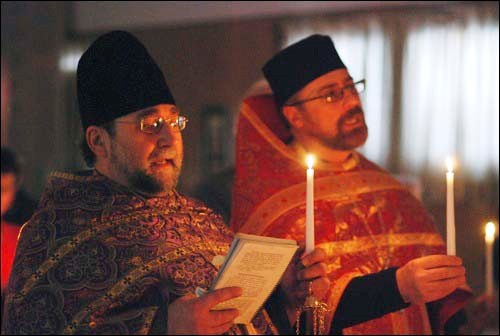As most people in the Battlefords were preparing for the holiday season of plenty, a small group of people took the time to remember those who starved to death in the Holodomor.
Between 1932 and 1933, the Soviet regime engineered a famine by selling grain at a low price to Western markets, with the intent to undermine the Ukrainian national resistance.
At the height of the famine, it is estimated Ukrainians were dying at a rate of 25,000 per day.
The service, held Nov. 27 in the Slawa Centre, was officiated by Father Taras Udod and Father Mykhaylo Fedoriv.
"It's very heartwarming because, finally, the world at large is acknowledging that it happened," said Fr. Udod, adding the Soviet Union was still officially denying the event as recently as the 1980s.
Fr. Udod told the assembly about his father, who started Grade 2 in the fall of 1932 with a class of 32 students. By spring of 1933, only eight students remained.
"And that was only one class," said Fr. Udod, with tears in his eyes.
He explained how Ukrainian villagers would be shot for stealing grain.
"Punished for what? For eating? For wanting to survive?" asked Fr. Udod.
One of the attendees, Larry Romanow, said his mother had relatives in Ukraine at the time, although they were closer to the Polish border and therefore spared from the worst of the famine.
Romanow said holding a memorial service is important in ensuring similar acts do not occur again.
"If people remember, they have a chance of preventing future genocides," said Romanow.
Fr. Udod pointed to the starvation in certain African countries, saying famine and starvation continue to be used as a tactic of war and it needs to be stopped.
"We say never again to us, but we also say never again anywhere," he stressed. "You cannot use food as a weapon."

.png;w=120;h=80;mode=crop)


